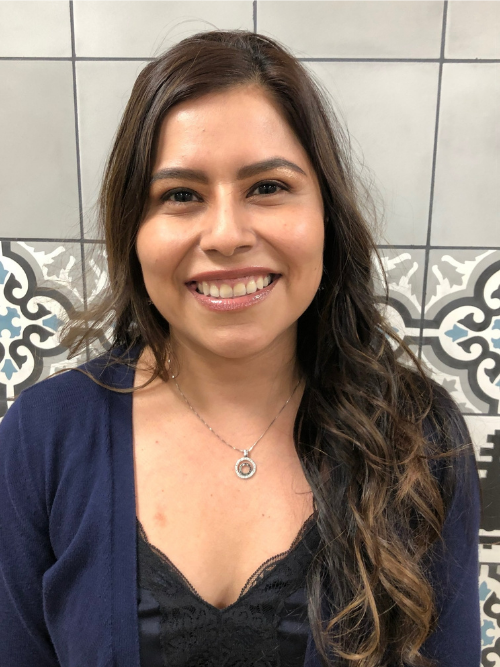
For DaVita teammate and Registered Dietitian (RD) Cristal Chora, helping patients process powerful emotions is all in a day’s work. “People are scared, they’re angry. Above all they’re overwhelmed. Entering into dialysis is a huge life disruption.”
Chora knows this reality better than anyone. While still in her teens, she was diagnosed with end stage kidney disease (ESKD) caused by systemic lupus. Her own health journey led her to DaVita and, ultimately, to a successful kidney transplant from her mother.
“When it happened to me, I didn’t know anything about what to expect. I was so angry and frightened. But my care team was warm and welcoming. I always knew I needed to come back to DaVita because they made such a big difference in my life at a time when I was so distraught,” Chora recalls.
Now fifteen years later, Chora pays her experience forward every day working with the growing population of DaVita patients undergoing home dialysis
At DaVita, every patient on peritoneal dialysis (PD), a home treatment option, receives consistent diet and nutrition support from their own dedicated RD. This journey begins with Welcome Home; a series of educational modules that enable structured conversation to set patients up for success on the renal diet. Since maintaining proper nutrition is critical to both transplant-readiness and post-transplant health, the dietitian relationship is an essential pillar of DaVita patient care. Working side-by-side with their RD, patients receive information about how key nutrients function in the body and how their levels can be managed through diet to stay in optimum range. Chora encourages family members to participate in these educational sessions in an effort to surround patients with both practical and emotional support.
Welcome Home provides a standard framework, but Chora notes that when it comes to dietary guidance, one size does not fit all. “I always start by just asking my patients questions about what they like to eat, so I can meet them where they are,” she explains. “I tell them we can make everything fit—just maybe not every day, or not in large amounts.”
Chora knows from experience that setting the tone for long-term, sustainable healthy habits can make all the difference in patient outcomes, including post-transplant. “I hope my story helps my patients understand that proper diet and exercise aren’t just things we need to do right now because we’re sick. We need to do these things ongoing into the future, to feel good and have a long, healthy life.”
While Chora’s personal history gives her special empathy for those in her care, a lot has also changed in the work of kidney care dietitians since she was a patient—and new research emerges every day. Chora keeps up with the latest in nutrition science, renal dietetics and clinical care best practices with a constant flow of continuing education, including regular webinars offered by DaVita and its partners. “I read everything,” she says, noting a new partnership with the American Diabetes Association that allows DaVita RDs access to an even larger library of continuing education resources.
Cultural sensitivity in the patient-caregiver relationship is another area of recent evolution across the health care sector, and the work of RDs is no exception. Chora, who is of Mexican heritage, serves on DaVita’s Cultural Committee; a subgroup of the larger Nutrition Services Patient Education Committee. She regularly reviews educational materials to help ensure their contents are culturally attuned to a Hispanic patient population. “It can be something as simple as making sure popular Hispanic dishes are included in the lists of foods to emphasize or limit,” she explains. “These details are important to help patients easily see how the renal diet fits into their own lives.”
This month marks 15 years of post-transplant health and vitality for both Chora and her donor mom. Her journey of care has touched hundreds of DaVita patients with education, empathy and an inspiring example of what’s possible post-transplant for those diagnosed with ESKD. But equally powerful is her health-giving impact on those closer to home.
“Viewing all the changes I’ve made in my life, my parents have completely changed their lifestyle to include healthier habits as well.”











